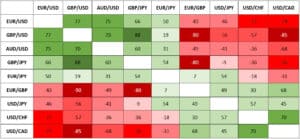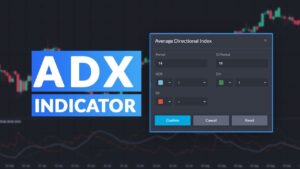The foreign exchange market, also known as forex, is a vast and dynamic landscape where currencies are constantly traded. While technical analysis and fundamental factors play a crucial role in developing forex trading strategies, success hinges on an often-underestimated element: market psychology.
This article delves into the intricate relationship between market psychology and forex trading strategies, exploring how understanding the collective mindset of traders can significantly impact your approach and potentially improve your results.
The Power of the Herd: How Emotions Drive Markets
The forex market is not a vacuum devoid of emotions. It’s a vibrant ecosystem where millions of traders, each with their own hopes, fears, and biases, make decisions that collectively influence currency prices. This collective psychology, often referred to as “herd behavior,” can create predictable patterns and trends that astute traders can leverage.
Here’s a closer look at some key emotions that influence market psychology:
- Fear: When economic uncertainty or negative news prevails, fear can grip traders, leading to a rush to sell, potentially causing a currency to depreciate.
- Greed: Conversely, positive economic data or optimistic forecasts can trigger greed, prompting traders to buy heavily, potentially inflating a currency’s value.
- Overconfidence: Winning trades can breed overconfidence, leading traders to take on excessive risk or disregard stop-loss orders, potentially resulting in significant losses.
- Anchoring Bias: Traders may anchor their decisions to a specific price point, news event, or technical indicator, hindering their ability to adapt to changing market conditions.
Common Biases that Can Derail Your Strategy
Understanding common cognitive biases is vital for forex traders. These biases are systematic errors in judgment that can significantly impact your trading decisions:
- Confirmation Bias: This bias leads traders to seek out information that confirms their existing beliefs and disregard evidence that contradicts them. This can result in missed opportunities or clinging to losing positions.
- Loss Aversion: The fear of losing is often more potent than the desire to gain. This can lead to exiting winning trades prematurely or holding onto losing ones for too long, hoping for a rebound that may never come.
- Herd Mentality: Following the crowd can be tempting, especially for new traders. However, blindly following popular sentiment can lead to missed opportunities or getting caught in a market correction.
Leveraging Market Psychology to Enhance Your Strategy
By incorporating market psychology into your forex trading strategies, you can gain a significant edge:
- Identify Emotional Turning Points: When fear or greed dominate the market, it can create temporary overshoots or undershoots in currency prices. Recognizing these emotional extremes can be a valuable signal for potential entry or exit points.
- Develop a Contrarian Mindset: While it’s not about going against the trend every time, understanding herd behavior can allow you to identify potential market tops or bottoms and position yourself accordingly.
- Prioritize Risk Management: Market psychology can be unpredictable. By implementing robust risk management strategies like stop-loss orders and position sizing, you can limit potential losses even if emotions run high.
- Maintain Discipline and Emotional Control: The key to navigating the psychological aspects of forex trading lies in self-awareness and discipline. Develop a trading plan, stick to it, and avoid letting emotions cloud your judgment.
Building a Resilient Mindset for Forex Success
Beyond understanding emotions and biases, fostering a resilient mindset is crucial for long-term success in forex trading. Here are some key strategies to cultivate:
- Patience: The forex market is a marathon, not a sprint. Patience allows you to wait for the right trading opportunities and avoid impulsive decisions based on short-term fluctuations.
- Discipline: The ability to follow your trading plan and maintain focus is paramount. Discipline helps you resist the urge to deviate from your strategy due to emotions.
- Realistic Expectations: Entering the market with unrealistic profit expectations can lead to disappointment and impulsive trading. Focus on developing a sustainable trading strategy and managing risk effectively.
- Continuous Learning: The forex market is constantly evolving. Devoting time to ongoing research, analysis, and staying updated on economic news helps you stay ahead of the curve.
The Marriage of Strategy and Psychology
Technical indicators and fundamental analysis are powerful tools, but forex trading thrives on the marriage of strategy and market psychology. By understanding the collective emotions that drive market movements, recognizing your own biases, and cultivating a resilient mindset, you can significantly enhance your chances of success in the ever-dynamic world of forex trading. Remember, the most sophisticated strategy is only as effective as your ability to navigate the psychological minefield of the market.
Let’s Manage Your Forex Funds With Fx Pips Guru!
Fx Pips Guru is a forex fund management company managing client’s funds based on equity size. Let’s do Live Chat with our experts.




